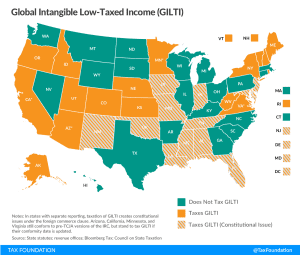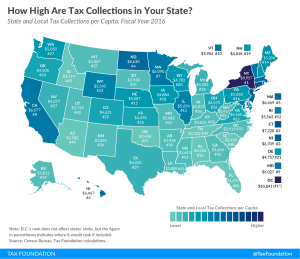
All Related Articles


The Real Lesson of 70 Percent Tax Rates on Entrepreneurial Income
The fall and then rise of entrepreneurial income claimed on the wealthy’s 1040 tax returns clearly tracks the seeming decline of inequality from 1950 to 1980, followed by the sudden rise in inequality since 1986. The shifting composition of income claimed by the rich due to changes in tax laws explains this illusion.
12 min read

GILTI Minds: Why Some States Want to Tax International Income—And Why They Shouldn’t
The new federal tax on Global Intangible Low-Taxed Income (GILTI) is something of a misnomer: it’s certainly global and it’s definitely income, but the rest of it is, at best, an approximation. It’s not exclusively levied on low-taxed income, nor just on the economic returns from intangible property. So what is GILTI, why might states tax it, and what’s the problem with that?
8 min readToward a State of Conformity: State Tax Codes a Year After Federal Tax Reform
States incorporate provisions of the federal tax code into their own codes in varying degrees, meaning that federal tax reform has implications for state revenue beyond any broader economic effects of tax reform.
73 min read

Unclear if Warren’s Wealth Tax Proposal is Constitutional
There is a chance that Senator Warren’s proposed wealth tax would be found unconstitutional, but opinions are mixed and the precedents go both ways.
2 min read
Sen. Warren’s Wealth Tax Is Problematic
Sen. Elizabeth Warren recently proposed a wealth tax on high-net-worth individuals, a type of tax that is poorly targeted, difficult to administer, and raises constitutional questions.
4 min read
